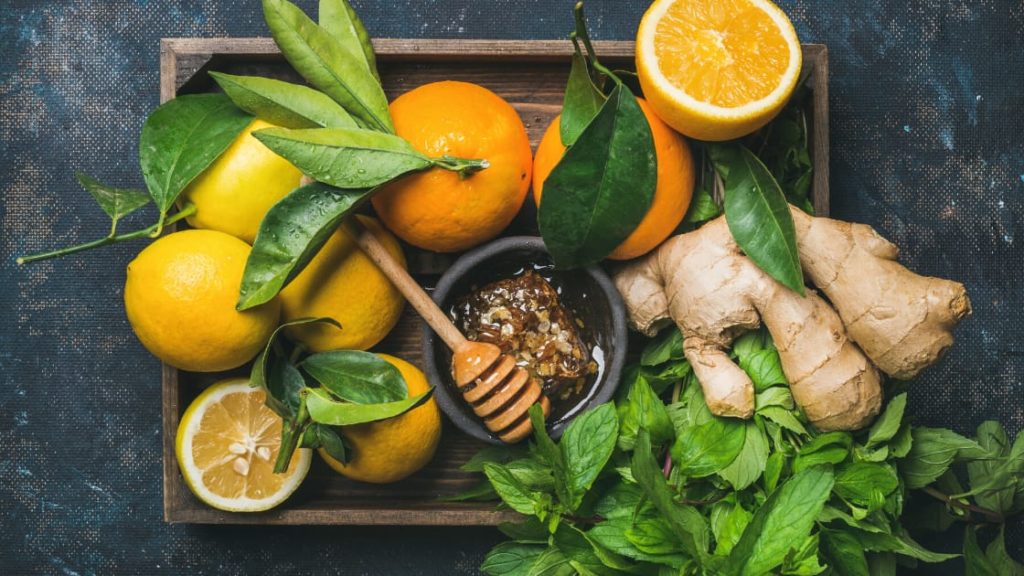Maintenance of a Robust Immune System…Now and Forever

Feeling generally “good” is something most of us take for granted on a day to day; myself included. We get caught up in the minutia, the “to-do” list, the ego, and rarely stop to think about how lucky we are to simply have two arms and two legs, or how good it feels to take a long, deep, unhindered breath.
I’m sure our friends and family who have fought through a cancer diagnosis or suffer from chronic debilitating pain understand how good it feels to simply feel good, but for many of us, this might be the first time, in a long time, we have felt so much gratitude for being well.
Now more than ever, maintaining our status of “healthy” feels extra important. Not only are we being presented with this challenge, many of us are battling loss of a job and tougher economic times. I wanted to provide my patients, friends, and family with some “food for thought” regarding how they can take care of themselves and maintain robust immune systems with an inclusive whole foods diet rather than dumping money into supplements or anything extra during this challenging time.
Below, I want to show you:
- Supplements that are often sold to “boost immunity”
- The real driving factors behind a healthy immune system
- We’ve all got to eat… how to choose foods that will naturally help you build and maintain a healthy immune system
Most frequently recommended supplements to “boost” your immune system
- Zinc
- Vitamin C
- Glutathione
- Vitamin D
- Vitamin A
- Selenium
- Elderberry
- And many…many…more…
Should we be supplementing with Vitamin D and Vitamin A?
There is an interesting conversation happening right now around whether or not it is a good idea to be supplementing with Vitamin D and Vitamin A, and if mega-dosing these vitamins could actually be harmful for us in fighting the SARS-CoV-2 virus. There is evidence suggesting that mega-dosing these vitamins could potentially up-regulate the receptors that the SARS-CoV- 2 virus binds to which ultimately leads to the potentially deadly inflammatory symptoms associated with Covid19. You don’t need to actively avoid eating foods rich in these vitamins but now might not be the time to megadose them via a supplement.
The real deal around maintaining a healthy immune system
The concept of “boosting” the immune system is not something I find useful. Robust and healthy immune systems are built over time. This is primarily done through healthy lifestyle habits that can’t be sold to you and are not rocket science. They are daily choices you make and habits you create that allow you to maintain good health throughout your life.
Getting regular restful sleep, consistent daily movement, and eating a diverse and inclusive whole foods diet with plenty of water are the most important factors in building and maintaining an immune system capable of fighting illness. Supplementation should be thought of as the last 10%, and most of us could probably use some work in the above mentioned before we start stocking up on all the pills and capsules!
Let’s not forget one more wildly important factor when it comes to maintaining good health; community. Being a part of a community can look like a lot of different things to different people; family, friends, the gym, church, a book club…it has been shown time and time again that this is one of the biggest factors in determining overall health and longevity in humans. While we might be hauled up in our houses right now, people are finding creative ways to use technology to maintain a sense of connectedness. Let’s focus on this right now more than ever, and not let our relationships be put on the back burner.
The whole foods approach to getting more of the good stuff
Many of you have probably already noticed that the shelves of non perishables at the grocery store are wiped clean. One thing that has remained plentiful is access to fresh fruits and vegetables, as well as frozen animal products. Focusing on making the right choices at the grocery store to get in a little extra of the good stuff during this time is much more affordable than stocking up on supplements. Here are some things to keep in mind the next time you are there…
The information provided is compiled from the Nutritional Therapy Association and Weston A. Price Foundation whose focus is on providing information on an inclusive, rather than exclusive, diet that is based on traditional principles found around the world.
1. Eating foods rich in cysteine and glycine
- Cysteine and glycine are two of the amino acids our bodies use to make glutathione.
- Glutathione is an antioxidant and supplement often recommended for immunity and detoxification.
- Eating foods rich in cysteine and glycine can help our bodies naturally produce more glutathione which can be beneficial for lung health. These foods include:
- High quality whey protein (if you tolerate dairy)
- Spinach
- Poultry (pasture raised)
- Low toxicity seafood
- Legumes
2. Eating more Omega 3 Fatty Acids to enhance your immune response
Good sources of Omega 3’s are:
- Low toxicity seafood
- Seaweed and algae
- Flaxseed oil
- Hemp and chia seeds
3. Incorporating more high quality dietary fiber to nourish and feed the gut microbiome and help modulate the immune system
Eating more plants = eating more fiber. Here are some extra good sources of prebiotic fiber that your gut might love:
- Onion
- Garlic
- Artichoke
- Burdock root
- Oats
- Raw fermented foods (refrigerated not canned)
4. Eat more foods high in Zinc
There is evidence suggesting that zinc has an effect on the SARS virus through inhibiting enzyme function. Because of the close relationship between SARS and the new SARS-CoV-2 (which leads to Covid19), there is hope that zinc could be helpful with inhibiting the later as well. Overall, zinc is important in enhancing the function of our immune systems. Foods high in zinc include:
- Oysters (come shelf stable in cans)
- Grass fed beef
- Pumpkin and sesame seeds
- Spinach
- Garbanzo beans
- Cashews
- Asparagus
- Shitake and crimini mushrooms
5. Eat more foods rich in Vitamin C
- Papaya
- Kiwi
- Bell peppers
- Broccoli
- Brussel sprouts
- Strawberries
There is so much about this virus that the experts still don’t know. What we do know to be true is that each and every one of us can benefit in a multitude of ways from eating home cooked meals made from real food, getting quality sleep, nurturing healthy relationships, drinking water, and moving our bodies. Perhaps this is the first time your schedule has allowed for you to slow down enough to focus on these fundamental aspects of wellbeing. My hope is that through all of this craziness we can reconnect with our bodies and carry this clarity back into our life once the pause has been lifted and our hectic schedules resume.
Please reach out to me directly if there is any way that I can support you through this challenging time.
Written by: Brooke Holmes, LaC
brooke@milehighholisticmedicine.com
Photo Credit: Canva





